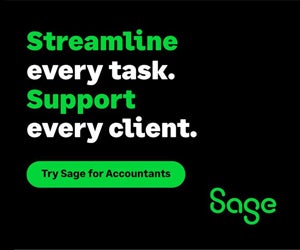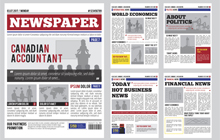Sunday News Roundup 23.02.12: CRA war of words, Timmies Americanas and more Canadian accounting news

Wrapping up the odds and ends from the past week in Canadian accounting news
Subscribe to our weekly newsletter and get all the week’s stories. Click here to sign up.
TORONTO, Feb. 12, 2023 – The mounting war of words between the Canada Revenue Agency and its employees does not bode well for tax season. This past week, the union representing 14,000 revenue agency employees — who have been working from home for almost three years — filed a bad-faith bargaining complaint against the CRA.
The agency wants them back in the office for a few days each week and the union says that decision should be part of collective bargaining. “The pandemic forced governments to modernize labour practices, and these practices need to be embedded into employee contracts,” the head of the union told Canadian Press.
Of course, each year the whole business of filing your tax return (and it is a business) gets called into question, and this year is no different. The cruel and unusual torture of doing your taxes was criticized by Vicky Mochama in the Globe and Mail this past week, who admitted in print to not filing her tax return in years. Mochama points out that in many countries around the world, filing is as simple as signing a pre-filled form, and the Liberals promised to pursue this remedy in the 2020 budget.
At the same time, the Taxpayers Ombudsperson does an annual campaign each year, that promotes filing to low-income and marginalized groups, which seems to fall on deaf ears. And now, on to the rest of the news from the past week in Canadian accounting.
A steaming cup of Americanas at Tim Hortons?
What do a bankrupt Brazilian retailer and Canada’s coffee brand have in common? They are both owned by the same Brazilian billionaires. To be more specific, they are owned by 3G Capital, which owns Restaurant Brands International (RBI) the parent company of Tim Hortons, Popeyes, and Burger King (3G also owns Kraft Heinz).
According to the Financial Times (UK), Reuters and other media outlets, the collapse of Lojas Americanas has led to “allegations of fraud” against the 3G founders and finger pointing at PricewaterhouseCoopers (PwC) for their role in the crisis. Questions are now being raised about PwC’s audit failures globally and the accounting at Kraft Heinz (although we should point our that the auditor of RBI is not PwC but KPMG).
American financial investigative reporter Francine McKenna has written an interesting post about the scandal on The Dig. McKenna first wrote about Kraft Heinz accounting back in 2020 as part of a series of lawsuits and an SEC investigation. For a fun look at the personalities involved, try Americanas Scandal Pits Brazil’s Billionaires Against Each Other from BNN Bloomberg.
Consumption taxes versus personal income taxes
Allan Lanthier, who has written for Canadian Accountant in the past, had an Op-ed in the Financial Post this past week, arguing in favour of consumption taxes. Lanthier points out that “of the 38 countries surveyed by the OECD for 2020, only three used consumption taxes less than we did — Japan, Switzerland and, bringing up the rear, the U.S.” The solution? An increase in the rate of GST, coupled with a significant cut in personal income tax rates.
The storm after the calm in business bankruptcies
Back in December 2021, David Bish of Torys LLP wrote in Canadian Accountant that 2021 had defied economic expectations, but 2022 would see insolvencies increase as government financial supports were gradually withdrawn post-pandemic. That prediction turned out to be correct, as business insolvencies surged by 37.2% in 2022, the largest year-over-year percentage increase in over 30 years, according to data provided this past week by the Canadian Association of Insolvency and Restructuring Professionals (CAIRP). The construction, accommodation and food services, and retail trade sectors have been hit hard over the past year.
“Inflation has pushed up the cost of everything from raw materials to fuel, putting significant financial strain on businesses,” says Jean-Daniel Breton, Chair of CAIRP. “At the same time, consumers are grappling with the cost of living and reducing their spending. As business owners struggle to manage these impacts in addition to debt carrying costs becoming increasingly expensive, we anticipate the number of businesses seeking restructuring or debt relief options will continue to grow in 2023.”
Hidden in that story, however, was news that consumer bankruptcies actually decreased in 2022, while insolvency filings increased by 11.2 per cent. Dan Kelly, president and chief executive of the Canadian Federation of Independent Business (CFIB), wants another extension to the repayment of small business pandemic loans, as half of all small businesses have yet to see sales return to pre-pandemic levels.
Quick Hits: Articles of Interest
Canadian
Charlottetown council receives forensic audit report, but details under wraps for now (CBC)
Wealth taxes have ‘questionable effect’ on corporate decision-making (Wealth Professional)
Audit says City of Toronto's financial records often 'erroneous,' 'incomplete' (CTV)
The Underused Housing Tax affects more people than expected (Globe and Mail)
CRA denies transit employee's costs from working away from home, gets taken to court (Financial Post)
International
How Can We Make Accounting Cool? (Wall Street Journal)
UK accounting watchdog chief resigns to head rail project (Reuters)
EY’s Split Faces ‘No Tremendous Hurdles,’ CEO Says (Wall Street Journal)
Ernst & Young’s Germany Branch Brought Back Into Wirecard Suit (Bloomberg Law)
By Canadian Accountant staff.







(0) Comments